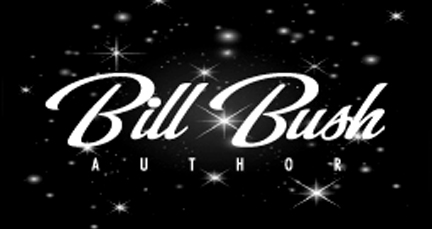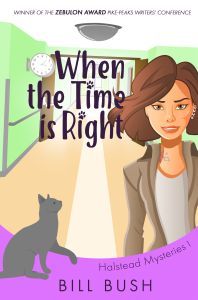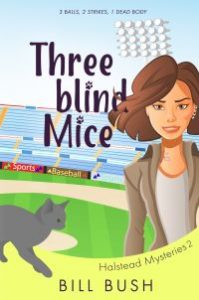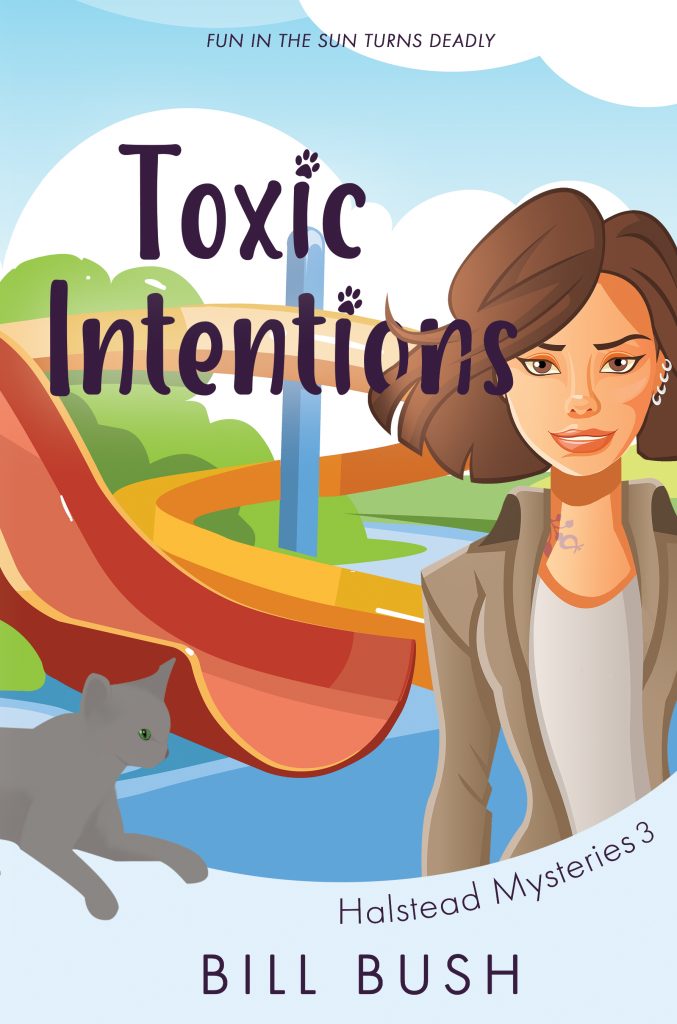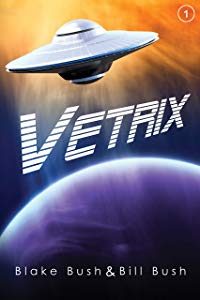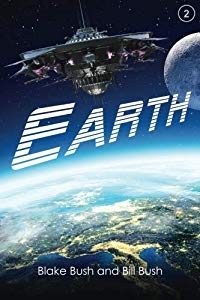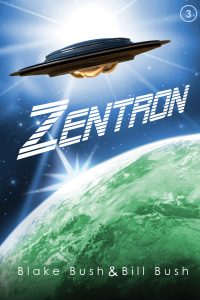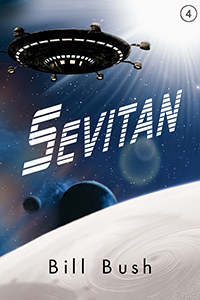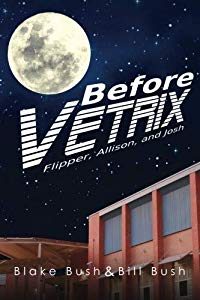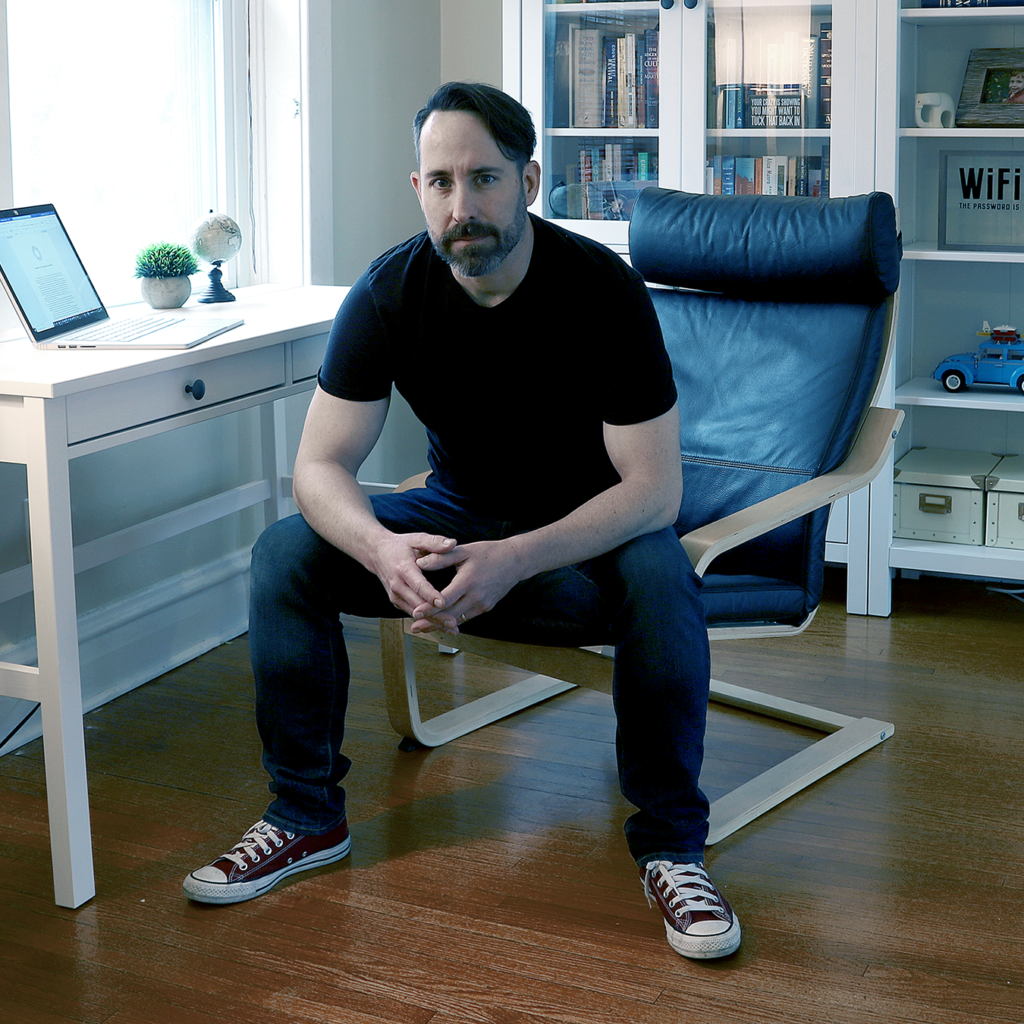
Biography
I’ll skip the more formal bio which people can find on Amazon. Here’s the short and sweet stats. I grew up in the 80s and 90s on all the great cartoons, TV, movies, toys and video games of that time. What a great time to be a kid! I’ve got a background in visual design. Growing up, my twin brother and I always wanted to draw comic books. Now, I just write. I’m also a dad and a husband. I’ve given up on getting my wife to read my nerdy book, but my kids are loving it. There’s nothing like sharing stories with people and sharing stories with my kids is the absolute best.
Share a little bit about your book, Ringstraked: Ruin of the Giant King.
It’s a fantasy book for sure. But it’s somewhat unique. The magic system is more about superheroes than wizards or spells, etc. It’s also set in the ancient, middle east, whereas many fantasy novels are in a type of Middle Ages or Renaissance setting.
Why set it there? Well, the book fundamentally tries to imagine what the world would be like if superheroes were real? How would our history be different as people with superpowers began to emerge in every nation?
Now, this isn’t entirely new ground, of course. I really enjoyed Amazon’s The Boys, which asks that question too. Also, the movie Chronicle, which was great. But most “realistic” takes on this question are set in modern times. Some corporation invents some device or formula or some alien species transformed ordinary people.
But my book imagines this happening a long time ago at the dawn of civilization. Now, Marvel’s Eternals recently touched on this. And I won’t comment on its mixed receptions. All I will say is that my book and audiobook was written and published way before Eternals was even announced.
And I think I’m taking the plot and concept in a far different direction. In particular, the villains aren’t nameless, faceless monsters or robot-looking aliens the size of a planet. And the heroes aren’t genetically engineered off-worlders that really aren’t a part of humanity. They are home-grown, real people who represent the nations and cultures they come from, something readers can care about.
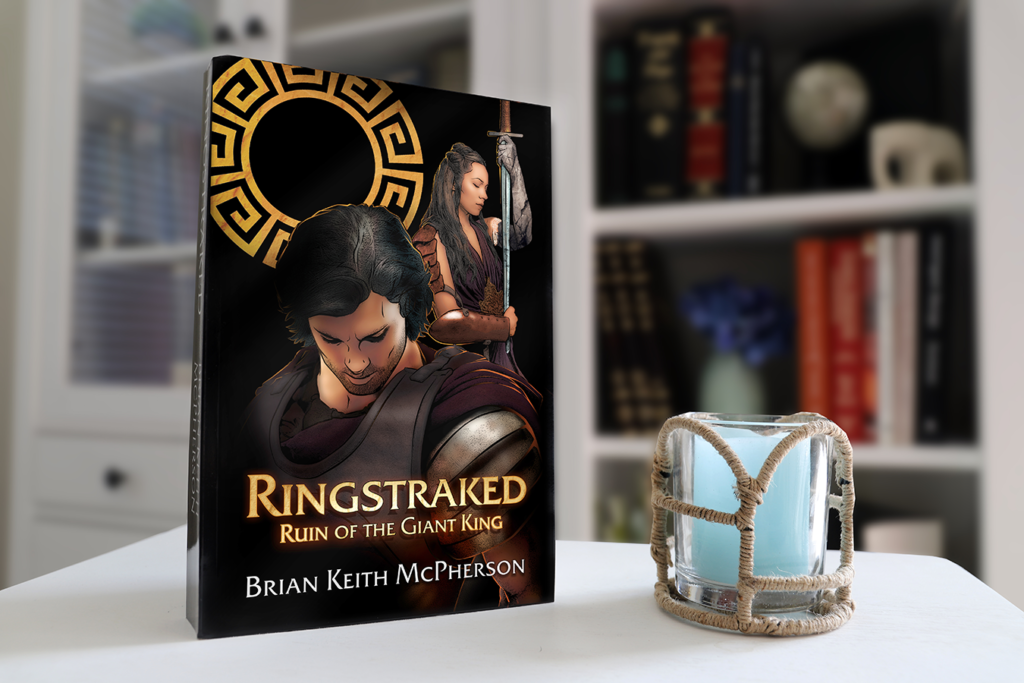
How did you get started as a writer?
I’ve been writing casually since college, which was a while back for me. In college, my twin brother and I wrote a 600-page novel with dozens of characters. In our mind, it was a blend of Star Wars and Marvel’s X-men.
Now that I’m getting older and my life is settled down a little, I’ve gone back to writing. With this book, I joke that I wrote it by accident. And what I mean is that I intended to write a story in a more modern setting. But I didn’t want to just do exposition about where this world came from and its magic rules. So, I started writing a back story and I wanted to make sure it was sufficiently developed. And eventually it was obviously so developed that it had turned into its own book.
Do you plan to publish another book? If so, when?
Yes. I think writing is in my veins now. It’s hard work but very fulfilling.
Just getting started on the new book. This will be something a little different. Definitely still set in the same time frame as the last book, which is the ancient earth. There will be similar themes as the last book and readers can expect to continue to see varied and interwoven storylines that I think will surprise them.
I’ve also marshalled two of my brothers in the effort, to bounce ideas off of and help push the story in the right directions. I’m really excited about it.
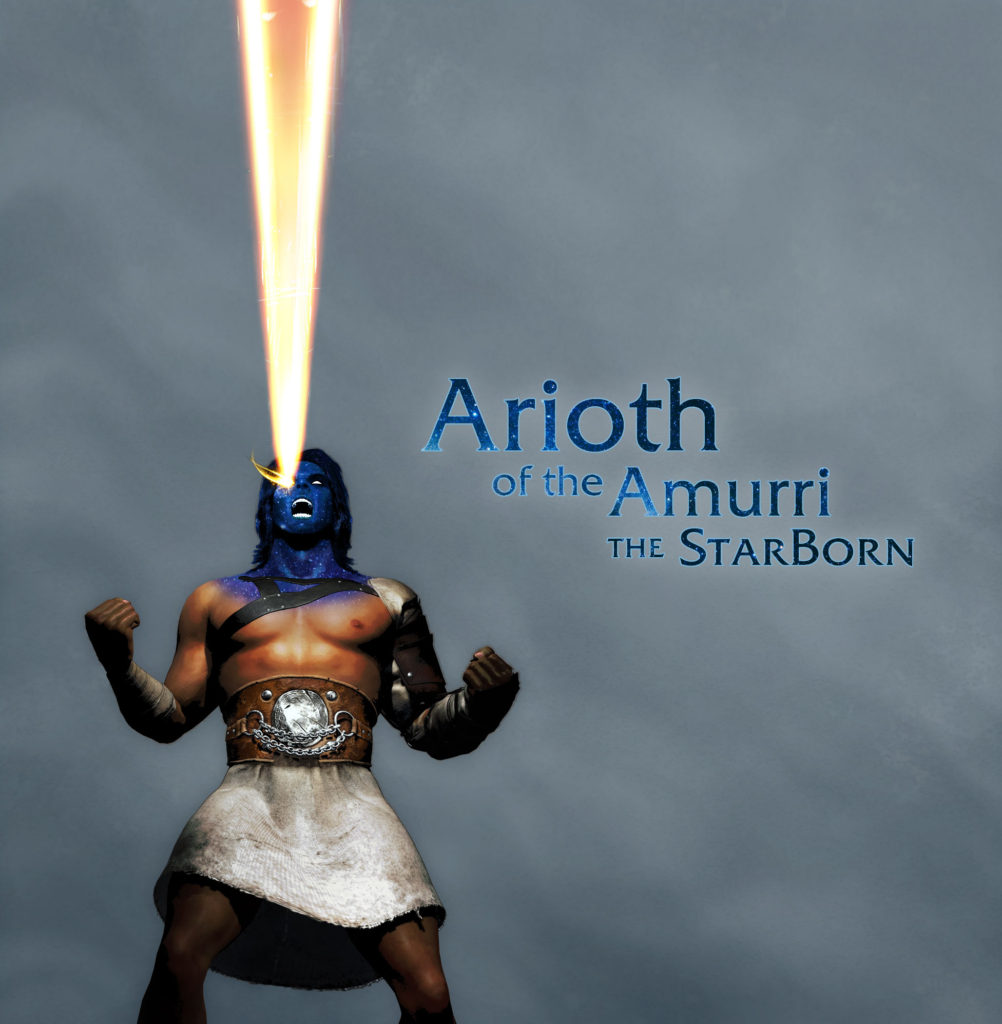
Your author page on Facebook is called Popcorn Mythology. Where does that name come from?
So, if there’s one thing I can spend hours doing, it’s talking about all kinds of TV shows and movies and even cartoons from when I was a kid, high school, college.
When I started writing, I was thinking about what inspired me. And I realized that I had a kind of mythology, a set of archetypes and nostalgic impressions that formed a kind of lore. Only this mythology wasn’t based on ancient legends. It was based on pop cultural stories and entertainment, the kinds of things you would enjoy while eating a bucket of popcorn. And that’s where the name came from, “popcorn mythology.”
And when we started it, the intent was not only to talk about my book, but more to create an opportunity to have conversations with other people with similar interests, not from an academic perspective, but in a common language of pop culture emerging from the 80s and 90s.
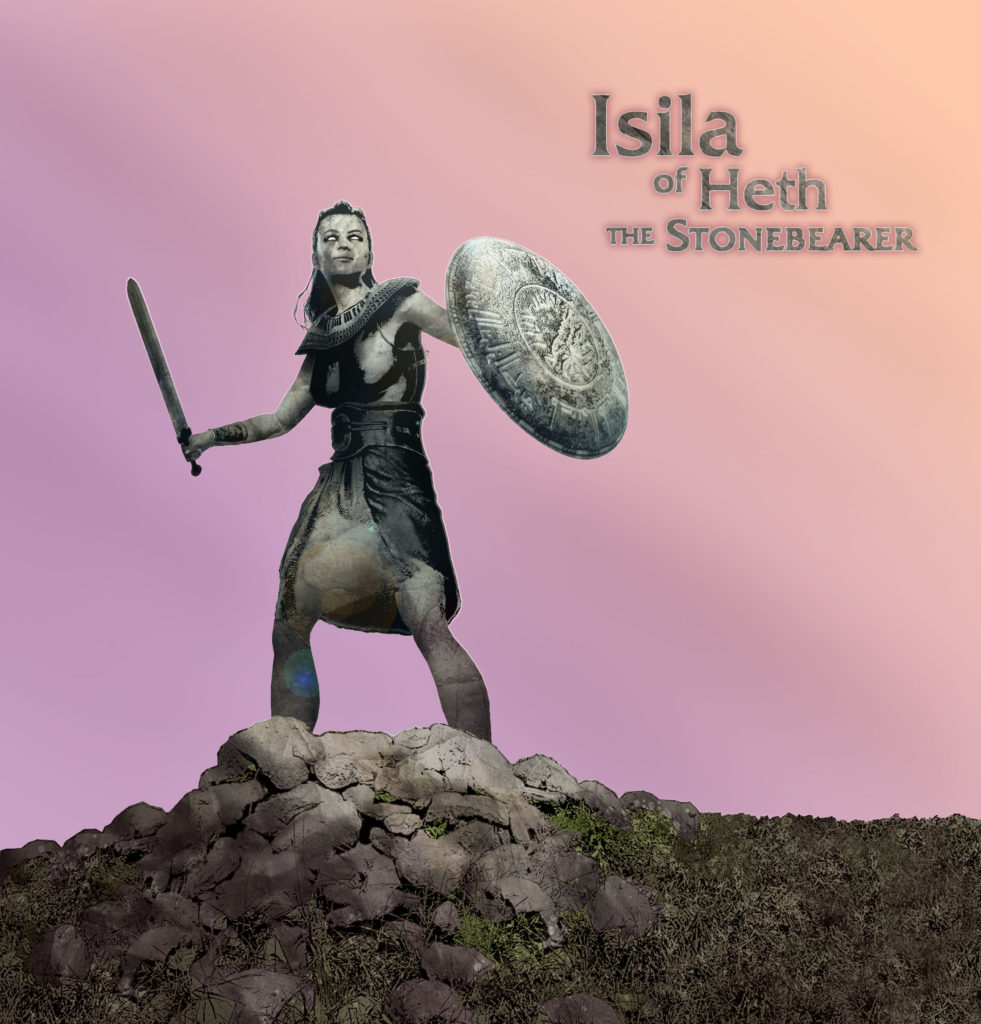
What is your oddest writing habit?
Well, I’ve heard this is true of some other writers. But I feel pretty odd about it. I don’t read a lot of books. I prefer movies and TV. In a way, I think as a writer it causes me to really value dialog because of the way actors can really deliver character through the way they talk. It also creates a sense of how body language is important, etc., essentially ways to establish distinct and hopefully rich characters without relying on exposition.
I think it’s also created a certain sense of pacing. One of the things that frustrates me sometimes in movies or even serial TV shows is when the pacing is off. Because that’s also pretty apparent in a medium like video. To me you need a good balance of dialog and action and building and twist, but beyond balance you also need a rhythm. A reader needs to be excited and feel the suspense, but also get chance to breathe, absorb, be happy when a character is happy, or sad, or feel relieved as they feel relieved, and just have a well-rounded full experience with them.
And that’s the kind of escapist nature of entertainment, right? Getting to go through a range of ups and downs with characters. For me, I want readers to feel the kind of gratification of work and reward, relationships and meaning, that we all want in our own lives.
What is the most difficult part of the writing process for you?
Finding the time. I’m a husband and a dad. And I have a full-time job that I really enjoy. So, I’m often sneaking time late into the night, making deals with myself about how little sleep I can get by with or how late up I can set my alarm or if I really need to exercise the next morning before work.
My book ended up over 500 pages. But when you really believe in something, when you really think you’re producing a quality story, you get so involved that you are just emotionally invested, and you can’t pull yourself away.
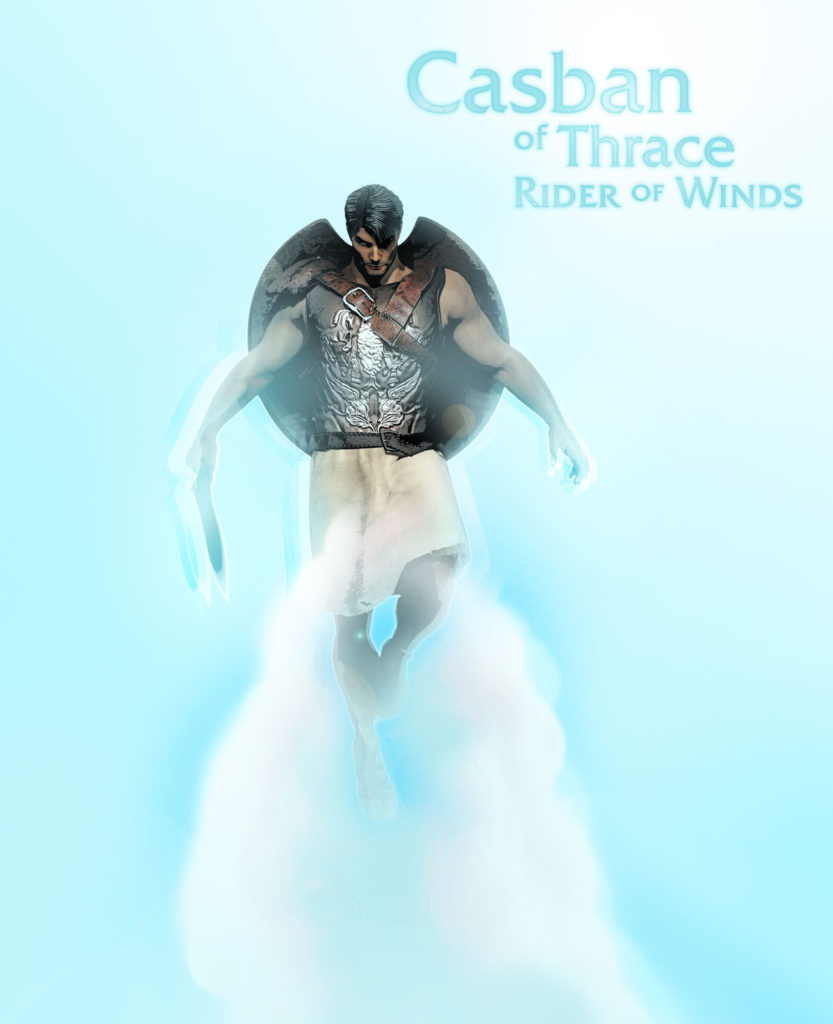
Where do your story ideas come from?
Well, no surprise that I’m trying to recapture the magic of things I grew up with.
You know originally I thought it was the particulars that matters. Star Wars as a brand. Luke and Han and Leia and Vader. Christopher Reeves as Superman. But now that I’m older, I realize there are these common kernels, these more basic elements that are common to human experience, aspects of all stories that make them good stories, or of good character writing that make for good characters.
Of course, I’m not the only one who realized this. It’s not rocket science. But that’s where my ideas come from. A desire to recreate the inspiration that I felt as a kid and to provide, at least for me, to ensure that there is a kind of quality that I remember from those great movies and TV shows of the 80s and 90s. Which I think is more important now than ever because every streaming service is producing all kinds of content in a race to just get stuff out there no matter what the quality is.
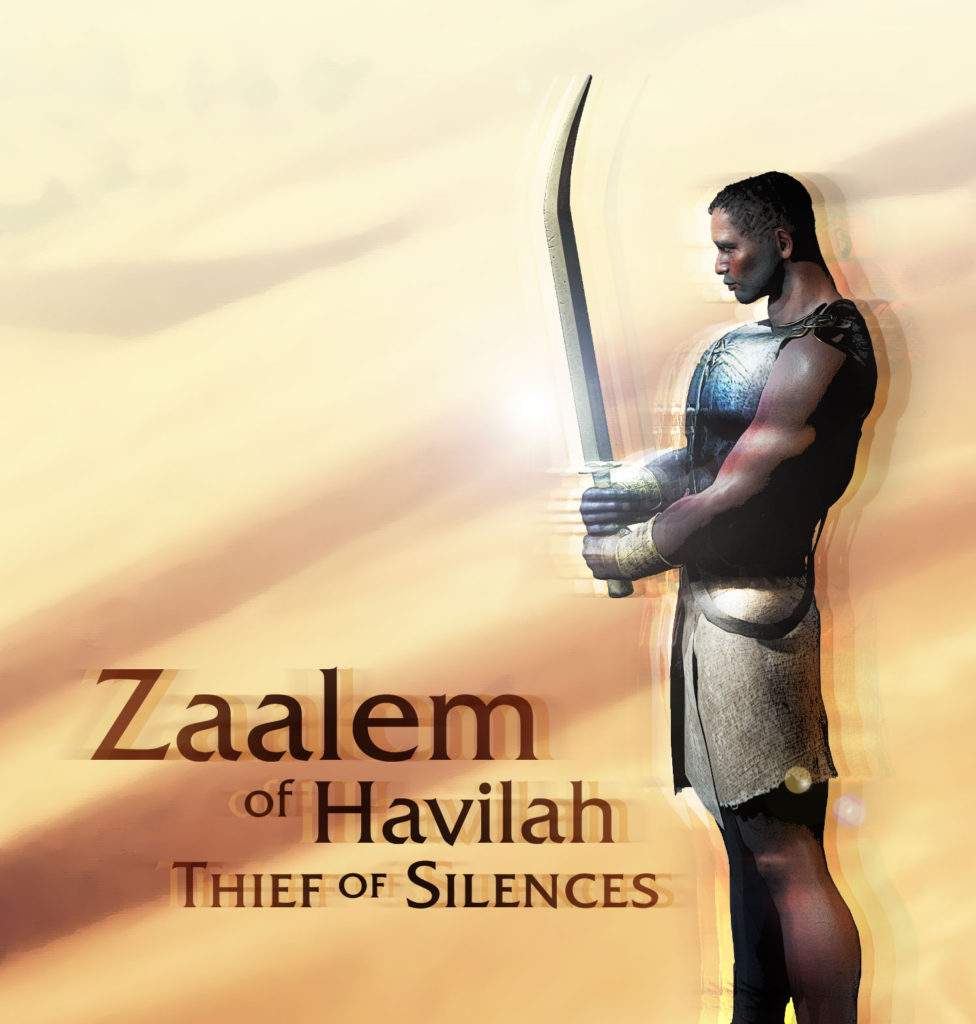
How do you come up with character names for your stories?
I tell my kids that all characters are in some ways either an extension of yourself or of people you know and the roles they played in your life.
Sure, you may think to yourself, “Ooh, I want this guy to be my Captain Jack Sparrow” or “this guy is my Loki,” but ultimately you have to fill in a lot of details. And movies and TV, which is kind of my wheelhouse, they don’t give you a lot of character depth, at least not depth that is articulated the way that an omniscient narrator has to do.
So where do you fill that in from? It has to come from you and your relationships. You write what you know, right. That’s the adage. Again, not rocket science. I’m not inventing this stuff.
But I recently started reading my book to my kids at night before bed. I have a boy and a girl. And what I told them was this. “This story is about a brother and a sister. And the brother is very smart. And the sister is very special. This book is in part about you.” And that is true. You take inspiration for your characters from bits and pieces of yourself, of people you knew, or even people you barely knew that left some striking impression on you.
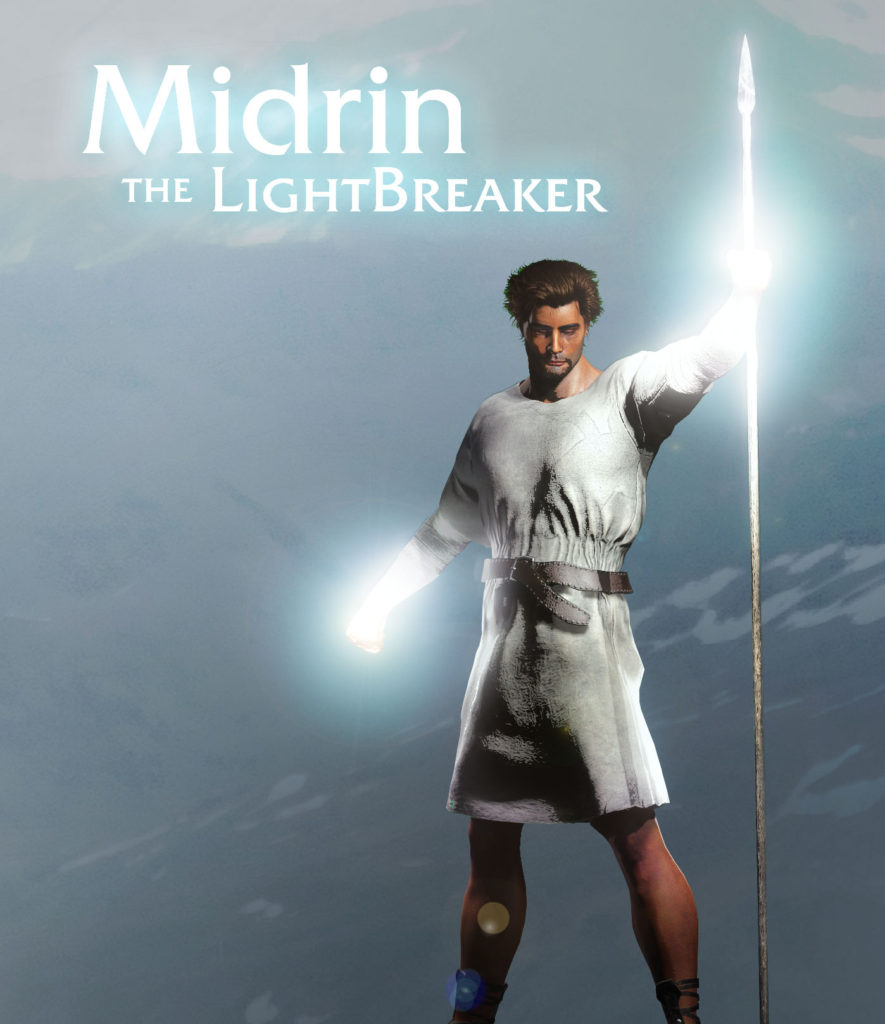
If money were no object, what would you do?
If money were no object, I’d turn this story into a movie series. I’d put a ton of cash into large sets, practical special effects, and historic locations.
But what I wouldn’t do is cast a bunch of well-known actors. I think about Mark Hamill and Carrie Fisher, these weren’t household names when Star Wars came out. They were talented. They knew how to embody the characters in this strange new world. And that’s why the characters came to life on-screen.
My worry is that if you just cast famous people, then the show often (but not always) becomes about the actor. The actor becomes the selling point, the cornerstone of the marketing campaign. But if you get talented people that aren’t super famous, then the characters and the story become the most important thing, the selling point.
For me, Game of Thrones was a great example of that. And honestly, the same was true for most the super heroes in the Marvel Universe. People don’t remember this, but Robert Downey Junior was not exactly an A-list actor when the first Iron Man movie came out. And I think the magic happens, when it’s about the story and the craft, not the fame.
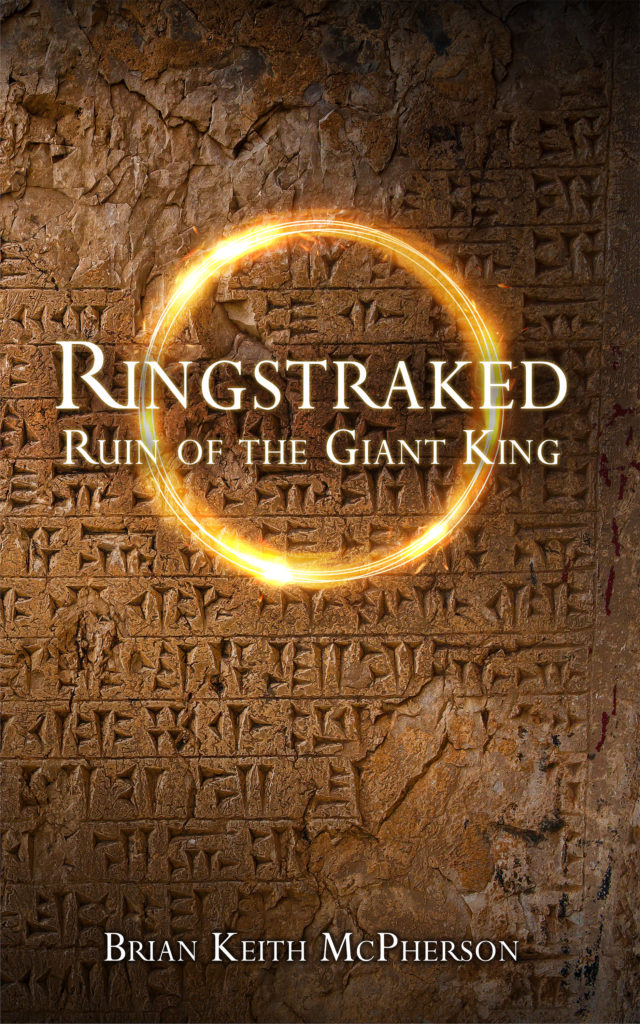
What does success look like for you as an author?
I’m not looking to make money off my books. As I mentioned, I have a career that I really enjoy. If people liked my book or the audiobook, I’d give them away. That’s not how Amazon works. And that’s not how you pay for things like getting an audiobook made, or better cover art.
But if they really are good quality, then success for me is that the book isn’t really lost in the digital shelves of Amazon, buried under a thousand other books in the same genre. What I want, as a writer, is for my stories to be shared and to bring people enjoyment. Sincerely.
Anything additional you want to share with readers?
One last thing maybe, a bit of self-disclosure. I stink at marketing as it turns out. I am terrible at promoting this book. I just want to write. And it’s hard to stay out there in social media to promote. I don’t have a passion for social media and self-promotion.
I have a passion for writing, good characters, good character arcs, fulfilling conclusions, and (for my money) good dialog. And yes, I throw in some details fighting scenes peppered throughout to keep people on their toes.
But I’m hoping they won’t hold against me that the book has been poorly marketed. It’s my fault. I’m doing this on my own. And hopefully, they won’t let that get in the way of them trying it out. There’s some twists and turns in this book. And it’s an epic story. So, give it a chance.
Facebook
Twitter
Youtube (Book Trailer)
Book Locations: Amazon and Audible. Look for the name “Ringstraked.” I guarantee it’s the only thing you’ll find with that name.
Excerpt
(Chapter: The Vale of Gall)
Realizing he could not outrun the spear, the last giant determined to stand his ground. Raising his heavy shield before his face, he braced himself for what would surely be a forceful blow. But the spear struck without impact. Without a sound, it soared straight through both the shield and its bearer. The giant collapsed dead where he stood, as if falling suddenly into a deep sleep. For, the light which bathed the spear also lent to it a certain aspect of unnatural rigidity and potency, which no substance or armor could resist.
A soon as the spear’s task was complete, the Thracian champion recalled it again to his hand, just as he had done the first time. Catching it with graceful ease, he staked the spear upright in the ground as he turned toward the wounded Aganon, who was still on her knees, panting heavily in great pain.
Having seen the great skill with which the champion had struck down the giants, Aganon found herself in awe. She struggled to summon the strength to rise and attack. With the pike still lodged in her shoulder, she could hardly maneuver. Unless she could remove it, she would no doubt prove an easy mark. She had little recourse. To free herself, she would have to do something unthinkable. Groaning mightily and grinding her teeth, she drew the fire of her wings downward, causing it to shrink and gather into a single column of flame. The flame moved over her shoulder and onto the wounded arm. The fire soon engulfed the arm itself, burning hot enough to reduce the lengthy pike to cinder. It soon crumbled into ash, swept away in the passing breeze as the fire spread out along the full length of Aganon’s arm, even to the fingertips. She cried out in pain, then suddenly sighed in welcome relief. The fire could neither heal the wound, nor restore the strength of her arm. But, the arm of flesh was no more, now replaced by an arm of fire. Gone was the broken limb yet somehow, the fire had made her whole. Relieved of her duress, Aganon rose to her feet to face the Thracian. Remembering her battle with the champion of Elam, she stretched forth the contours of the fiery arm, shaping it into a wiry lash, which spiraled in rolling, sparking circles along the ground.
“We must kill her quickly,” Hyrus urged.
“No,” the champion forbid.
“Midrin, this is dangerous,” cautioned Hierapol. “You must not be naïve.”
“The decision is not yours to make, Hierapol,” replied the champion.
Pulling his spear from the earth, the champion directed his words to Aganon, speaking to her in the native Assyrian tongue.
“You understand me. I know you do,” he said. “Surrender and I will spare you, you and your army.”
“I have bested better men than you, Thracian,” Aganon scoffed.
“I assure you, you haven’t,” he answered soberly. “What’s more, you are wounded and in no condition to fight.”
“Am I?” she taunted.
“Don’t be a fool,” he warned her. “I am stronger, faster, and uninjured. I have killed your giants. And you have no idea what else I am capable of.”
Aganon was slow to move. She looked around her. A third of her army was dead or dying. En-Larsil’s body was lying on the ground in a heap not very far from her. She could see the other two giants as well, both slain and fallen to the dirt. Then her eyes turned back toward the towering champion of Thrace. He stood before her patient, ready, and holding the golden shield of the crescent moon. She took a few deep breaths. Jeruh kept his hands gripped tightly around the hilts of his swords, poised to strike. But there was no need. Aganon dropped once more to her knees. The fiery lash vanished into a thin line of black smoke shrinking backward all the way up to her shoulder. As the smoke drifted and disappeared, her left arm was gone. But at least the bleeding had stopped, sealed somehow by the fire. Exhausted and ailing from her wounds, she bowed her head.
“I surrender,” she said.
With their giants dead and their champion surrendered, Menosheth and the Babylonians lost all will to fight. Yet, the Thracian champion was somehow aware of their despair, and he began to speak to them in a booming voice that echoed mightily throughout the canyon.
“I am Midrin, son of Adan, champion of Thrace,” he shouted. “Your fight here is ended. For, I have ended it. And I will have quarrel with any man who says otherwise. Lay down your arms, and you will be shown mercy. I swear it.”
Menosheth was the first to lay down his sword. Coming forward, before the Thracian champion, he bowed his knee in surrender. Scattered throughout the canyon, the rest of his captains did the same. The surrender cascaded in a wave along the entire the length of the canyon, until all of the Babylonians, weary and shaken, dropped their swords and shields to the ground, stunned in disbelief.
The Thracian champion then turned toward Jeruh.
“Are you the one they call Jeruh of Illiund?” he asked.
“I am,” answer Jeruh.
“And you are in charge of these men?” the champion continued.
“I think I can vouch for that,” Hierapol interjected with a winsome grin. “And from the looks of things, doing quite well at it.”
“Hierapol,” replied Jeruh, “I had wondered if I should ever see your likes again after your departure from the tombs. It seems the last hope for Thrace has finally come forth from his place of hiding. Do you have any idea how many horses and riders have been spent in your search?”
“Not nearly as many as were wasted here today,” said the champion in stern lament, looking out across the field upon the great many lying dead and wounded on both sides.
“And here I thought being hard to find was rather the point,” jested Hierapol.
Jeruh feigned disapproval, “We could have used you a bit sooner.”
“Not much sooner, I should think. From what I’ve been told, Thrace has fared quite well with you at the old king’s side,” answered Hierapol, with a note of appreciation.
Standing to Jeruh’s right, Hyrus looked quite dissatisfied. The Thracian champion was the first to take notice, before even a word was spoken. For his gifts lent to him also a certain ability to intuit the inclinations of those around him.
“You, there,” said the champion to Hyrus. “Something displeases you? Speak up. Your voice will be heard here.”
But Hyrus was reluctant to share his thoughts. After all, he knew neither of the two men before him.
“Spit it out, Hyrus,” ordered Jeruh.
Hyrus turned to Jeruh and replied, “My lord, is it wise to spare an army of this size? As a whole, they are but a portion of Imrodin’s forces, yet the loss of their number would still be of great help in the war to come. We should kill them now, while we have the chance.”
“No,” said the champion.
Still speaking to Jeruh, Hyrus persisted, “We should at the least decimate their forces.”
But the champion objected yet again, “Not a single man laying down his arms in surrender will be harmed. I have given my word.”
“Forgive me, sir,” said Hyrus to the champion. “But I know neither you, nor your word, nor on whose authority you speak.”
“I speak on my own authority,” answered the champion plainly.
“Do you claim to be a king then?” Hyrus scoffed.
“No. But I am your champion. And on the field of battle, my authority can only be challenged by another of my kind.”
“I tend to agree with Hyrus,” responded Jeruh. “But seeing how we lack the means of killing so many ourselves, I don’t see that we have much choice in the matter.”
Hierapol smiled at the clever phrasing of Jeruh’s answer. For, he had somehow managed to go along with the suggestion even while clearly expressing his sharp disapproval.
“I suppose they’ll all have to come north to Illiund,” Hierapol observed in his typically cavalier tone. “Although, it doesn’t seem a particularly bright idea to bring an enemy army this size across our own borders. And then there’s the problem of where to house them and how to feed them all when we arrive.”
“We will release them back to the south as a warning to Imrodin,” ordered the champion.
“Begging your pardon,” Hyrus protested, “but the giant king of Babylon does not heed the warnings of men, neither king nor champion.”
“It does not matter,” the champion explained. “He’s coming north regardless. And when he does, his fate will rise or fall by the strength of his champions, not these men. Let them go home to their own people in peace, a sign of good will for the days that follow this war.”
Hierapol looked to Jeruh for a decision.
“Well?” he asked.
Jeruh was slow to answer, then finally spoke.
“I never had any intention of marching north with ten thousand prisoners. Do what you will. The field is yours.”
“And what of her?” asked Hyrus, nodding toward Aganon.
“You have the means to restrain her?” the champion asked Jeruh.
“I do. But it will be hard to move her.”
Upon hearing these words, Aganon offered no protest, nor did she even so much as lift her head. After glancing back toward her one more time, the Champion turned his attention once again to Jeruh.
“Make your preparations,” the champion ordered. “Use whatever means necessary but see to it she suffers little. She is coming with me, alive.”
“I’m sure my men will do their best,” Jeruh halfheartedly assured him.
And with that, Jeruh relinquished his command to Hierapol and the champion. He turned, heading over the crest of the ridge and to his horse, which was waiting on the downward slope. Weary from the day’s battle and even more weary from the months spent in preparation, he was content to hand over the burden of command. This was close enough to the ending he had hoped for, given how little hope he had to begin with.
“Well,” Hierapol remarked cavalierly. “That should be good enough.”
Then the Thracian champion turned toward Hyrus.
“Gather your men,” he told him. “When their champion is ready to travel, we leave for Illiund with all haste. We shall not linger here for the giant king to send another.”
Hyrus nodded in agreement.
“Good,” said Hierapol. “It’s been far too long since I was home.”
The champion walked slowly toward Aganon. Patting her gently on the shoulder, he spoke to her as one would to an old friend.
“Come,” he said, “we have a long road to travel, you and I.”
It was an unexpected gesture to be certain, and Aganon was by no means sure what to make of it.
